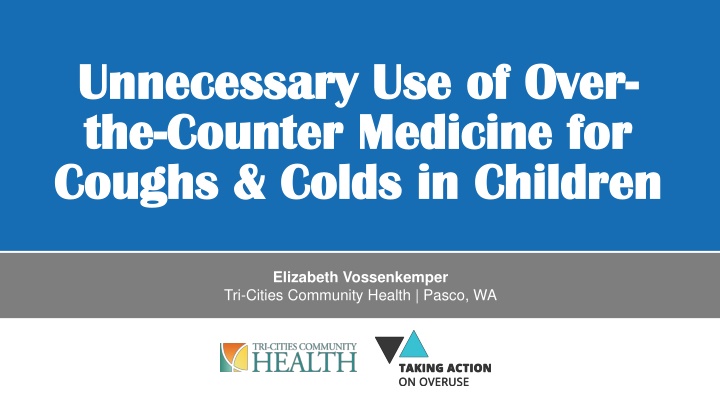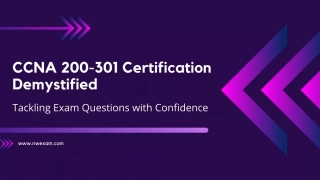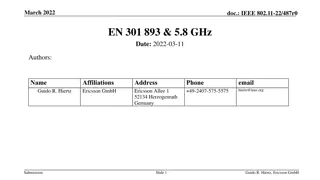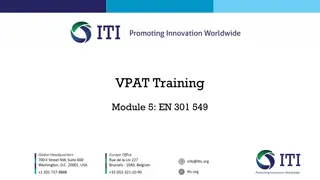
Effective Strategies for Reducing Overuse of Over-the-Counter Medicine in Children
Learn about how Tri-Cities Community Health tackled the problem of unnecessary over-the-counter medicine use for coughs and colds in children. Discover their evidence-based approach, key lessons learned, and successful strategies for promoting high-value, patient-centered care.
Download Presentation

Please find below an Image/Link to download the presentation.
The content on the website is provided AS IS for your information and personal use only. It may not be sold, licensed, or shared on other websites without obtaining consent from the author. If you encounter any issues during the download, it is possible that the publisher has removed the file from their server.
You are allowed to download the files provided on this website for personal or commercial use, subject to the condition that they are used lawfully. All files are the property of their respective owners.
The content on the website is provided AS IS for your information and personal use only. It may not be sold, licensed, or shared on other websites without obtaining consent from the author.
E N D
Presentation Transcript
Unnecessary Use of Over Unnecessary Use of Over- - the the- -Counter Medicine for Counter Medicine for Coughs & Colds in Children Coughs & Colds in Children Elizabeth Vossenkemper Tri-Cities Community Health | Pasco, WA
Overused Service & Rationale Prescribing over-the-counter medications for upper respiratory infections in children 0 13 years of age has more potential for harm than benefit. Goal: Be a positive catalyst to: 1.Ensure high-value, evidence-based care; and 2.Create an opportunity for providers, staff and patients to work as a cohesive team to prevent potential harm to our pediatric population.
Setting Tri-Cities Community Health (TCCH) a Federally Qualified Health Center in Eastern Washington. Patients are predominantly Hispanic. Most are migrant farmworkers with low health literacy and limited socioeconomic resources.
URI Early Critical Steps Symptom Kit Establish the extent of the problem by collecting data through EHR, identifying inappropriate prescribing for viral URI. Identify and engage key stakeholders by sharing data on overuse, and developing an action plan with input from prescribers, pharmacy, nurses, frontline staff, parents and leadership. Create resources. Gather input from multiple departments and create a "URI Symptom Kit for use instead of OTC medications.
Strategies Assessment of parent and guardian beliefs: URI Symptom Kit: Provider education and support: Offered at no cost to patients. The kit included patient education materials. Nursing staff and medical assistants were educated to provide parent teaching on how to use the kit, as well as how to support prescribers in implementation. Formal educational meetings to share data on current and past prescribing practices. Provided scripts for providers on how to talk to parents. Created a space for providers to discuss frustrations, concerns, and observations. Early focus groups were useful to understand the interests and motivations of parents and guardians. Their feedback was useful in clinician engagement to address parent and guardian concerns and resistance.
Findings Inappropriate Prescriptions for URI Visits, Birth-13 years, All Specialties
Key Lessons Learned Identify clinician motivators to de-implement. Being a clinical champion involves an immense amount of psychology. Focus education and training on front-line staff who are often tasked with patient education. Collecting qualitative data is as important as quantitative data because it speaks to the clinician and patient experience, as well as drivers of overuse.
Next Steps QI Publication of the project. Maintain the Gains: URI Symptom Kit handed off to pharmacy/purchasing department. Plans are in place for discussions about future high-value care projects within different departments. QI team at TCCH will pull OTC prescribing data quarterly to identify if a resurgence of inappropriate prescribing occurs. Empower other providers in these departments to take responsibility for ongoing implementation.





